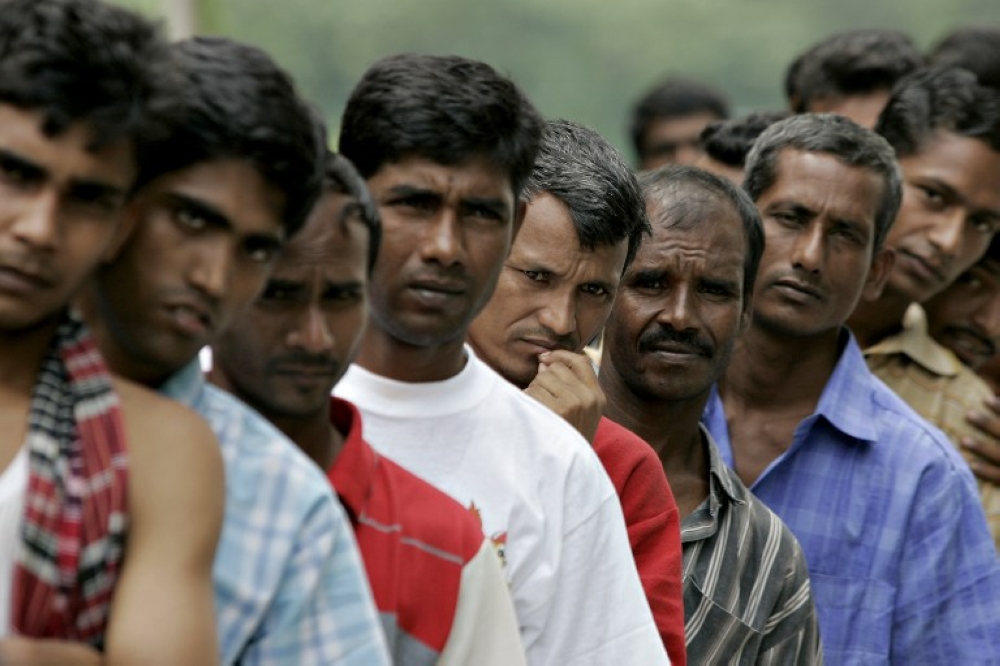OCT 21 — A few days ago, I witnessed a rather sobering scene.
I was walking towards my usual pan mee stall when I saw a vanload of immigration officers descend upon that particular kopitiam, after which chaos ensued.
It was as if a small bomb went off smack in the middle of the shop.
I saw one Myanmarese guy try to run but was chased and pinned down on the road. The officers grabbed and, in some instances, shoved some of the workers towards a section of the shop.
They also shouted at three or four people who were trying to say something to the officers, and/or were trying to leave.
In less than five minutes, more than half a dozen Myanmarese cooks were made to squat at a certain area in the kopitiam with officers standing over them.
Soon afterwards they were all put into the truck and, so I’m told, driven to a nearby detention centre.
As the cooks and workers detained were people who’ve cooked for my family over the past 10 years, I couldn’t help but feel a sense of sorrow at seeing them in such a position.
I cannot verify it, but I’ve been told that the detention normally lasts one or two weeks.
Securing releases can be complicated, failing which further detention or deportation may result.

Undocumented but necessary
Officially we have slightly more than 2.2 million documented foreign workers in Malaysia.
If we include those who are undocumented, the number is between 3.5 to north of 5 million.
So this means anywhere between 1 to 3 million workers have no papers granting them permission to work in the country — which means on any given day these folks, many of whom wash, cook and clean for Malaysians, could be arrested and detained.
I don’t know which migrant nationality is more likely to be with or without papers. I could venture anecdotal guesses but let’s not do that.
I don’t think I’m the only one who suspects our immigration system is somehow “broken.” It looks as if the most vulnerable communities are made to suffer even more, a fact rendered even sadder because our country in a very real way relies on them for basic services.
I mean, without the Bangladeshis, who would wash our cars? Without Thai women, who would massage our feet and backs? And, of course, without the Nepalese and Myanmese, who would cook a lot of the fish ball noodles, laksas and so on?
Again, it’s tragically ironic that the people on whom our society relies for basic (read: non-negotiable) services have to continually live scared of being forcibly sent to a detention centre.
I’m no expert but here’s my two sen approach towards “resolving” the illegal immigrant issue: Accept that the informal sector, with all their informal “players”, are here to stay. As long as no trouble is caused, the government should focus the crackdowns on crimes or illicit activities.
Immigrants operating gambling dens? No choice. They need to go and these places must be shut down. Immigrants running chicken rice stalls? C’mon. Give everyone a break.
Immigrants offering sexual favours, spreading STD and all other manner of vice? Crack down hard on these establishments. Immigrants washing our cars? I mean, why not?
Real life requires us to close one eye to various forms of infringement or non-compliance. The trick is to balance this “underside” with the overall need for stability.
The thing is, we all know this is already happening in the country. We know the authorities don’t arrest everyone, only a select few.
I suppose one contribution of this essay is to plead for greater leniency for foreign workers not engaged in criminal or illicit activity. Again, these are people who contribute to Malaysia’s nation-building by being involved in legitimate and necessary services which, interestingly enough, many Malaysians are unwilling to do.
Surely we can treat them better?
* This is the personal opinion of the columnist.






















